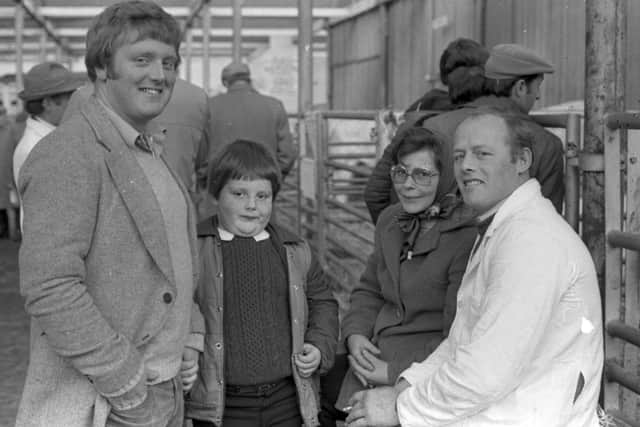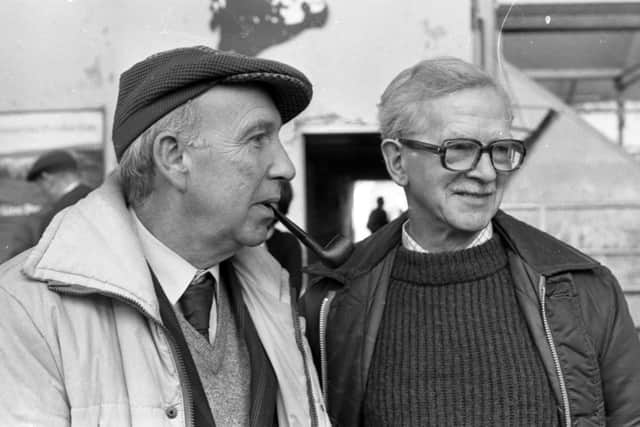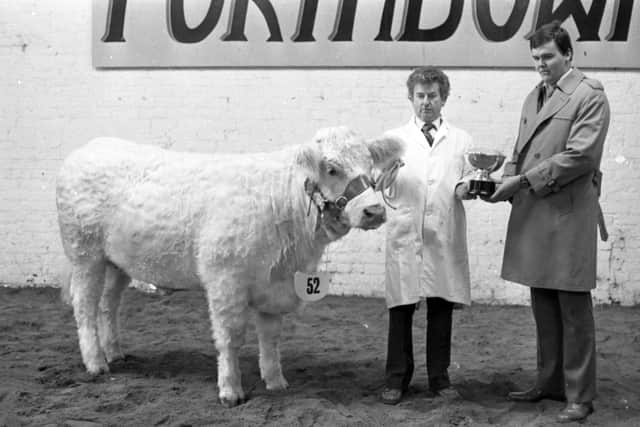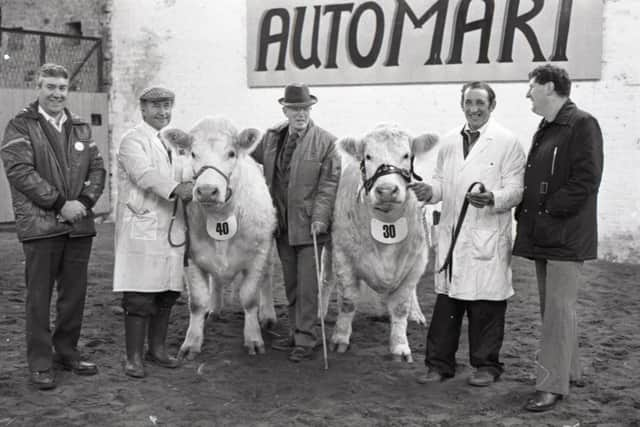Bygone Days: Abattoir strike in Belfast and other centres across province (1943)
and live on Freeview channel 276
“The strike is unofficial. Most of the other abattoirs in Northern Ireland have been affected by the dispute, and it is stated that about 170 slaughterers, including the 70 Belfast men have ceased work,” reported the News Letter.
One the few abattoirs that was not affected was that in Larne.
Advertisement
Advertisement
The News Letter added: “Neither was there a stoppage at Armagh or Enniskillen. Work was at a standstill Ballymena, and at Londonderry 14 men are reported to have ceased work.


“A partial stoppage has taken place at Downpatrick.
“In some centres arrangements have been made to ensure the supply of meat to hospitals and other institutions.”
The Northern Ireland Masters Butchers’ Association were to meet in the Wellington Hall, Belfast, to consider ways and means of maintaining meat supplies.
The News Letter noted: “It was stated yesterday that there was little meat supply, either in Belfast certain provincial areas, and that in order to prevent a serious shortage to wards the end of the week, definite steps would require to be taken by the ministry.


Advertisement
Advertisement
“The importation of dressed carcases from across-Channel was mentioned one of the possible steps likely to taken the ministry.
“The slaughtermen have been working without sheep tiers since the Ministry Agriculture took over the responsibility for meat supplies at the beginning of the war, but they now claim, despite the of rates, that they had been “working under protest”.
The dispute had been reported the Ministry of labour the Journeymen Butchers’ Association, which was trade union organisation the slaughterman belong.
A statement from the Ministry of Agriculture, said the reason given by the Belfast men for their action was that the ministry was not prepared provide for the tying of sheep prior to slaughter.


Advertisement
Advertisement
It continued: “It is well, therefore, that the facts should made clear. Immediately prior to the control of slaughtering the ministry in January there were certain men in the Belfast abattoir known 'sheep tiers'. There were such men in any of the provincial centres, and, consequently, slaughterman in provincial areas could not in any circumstances under any grievance that regard.
“It might also mentioned that sheep tiers are unknown in British abattoirs. In the Belfast abattoir sheep tiers are not remunerated directly either by the slaughterman or by the master butcher, for whom the slaughterman worked.
“Their remuneration consisted in the collection and sale by them of certain rough fat which they are permitted to salvage by the master butchers.”
The statement from the ministry continued: “Under control, it was, of course, urgently necessary that all fat should be salvaged for national purposes, and, consequently, the collection of fat and its disposal by those men could not permitted to continue.


Advertisement
Advertisement
“At that time the ministry was in negotiation with the Belfast Journeymen Butchers’ Association, the union to which the slaughterman belonged, for the fixing of headage rates for the slaughter of animals to be paid by the ministry under control.
“During those negotiations the union representatives raised the question of the sheep tiers, but not from the point of view that their continuance in the Belfast abattoir was necessary to assist the slaughterman.
“The desire of the union representatives was merely to ensure that, practicable, those men would not left without employment. That being so, the ministry undertook to see if they could find employment for the men. having made it quite clear that their employment as sheep tiers must cease
“The union representatives were satisfied with that undertaking and, in fact, employment porters were found for the men in question. During the three years which have since elapsed, the slaughterman at Belfast have worked without sheep tiers, and, until some weeks ago, had never raised with the ministry the question of the necessity of such help to them.”